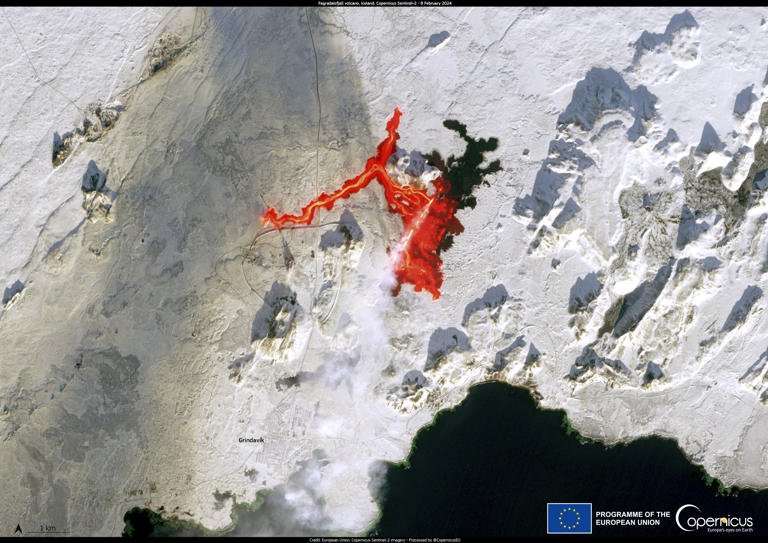Antarctic Heatwave 2024: Unprecedented Temperature Surge in Antarctica
Antarctic Heatwave 2024 has brought temperatures in Antarctica soaring an average of 10°C above normal. Discover the impacts of this near-record heatwave on the ice sheets and global climate.

© Photograph: Anadolu/Getty Images
Antarctic Heatwave 2024: Overview
The Antarctic Heatwave 2024 has sent shockwaves through the scientific community with its dramatic rise in temperatures. Over the past month, vast areas of Antarctica have experienced ground temperatures averaging 10°C above normal. Although temperatures in Antarctica typically remain below freezing during this period of darkness, some areas have seen temperatures rise up to 28°C above expectations.
This significant heatwave is part of a troubling pattern, as the past year has seen record global warmth. Temperatures have consistently exceeded the 1.5°C rise above preindustrial levels—a threshold set to avoid the worst impacts of climate change. Michael Dukes, the director of forecasting at MetDesk, noted that while daily high temperatures during the heatwave were startling, the average temperature rise over the month is even more concerning. He emphasized that this aligns with predictions from climate models that forecast severe effects of climate change in polar regions.
Impact on Ice Sheets
The Antarctic Heatwave 2024 has far-reaching implications for the continent’s ice sheets. Historically, such intense warming during Antarctica’s winter months can lead to significant ice sheet collapse. This recent heatwave is particularly alarming as it mirrors earlier climate predictions and could further destabilize the ice sheets, potentially contributing to rising sea levels.
Despite last month being the first in over a year without breaking temperature records, it followed an exceptionally warm July 2023. This July was 0.3°C warmer than any previous July, setting a concerning precedent. The continuation of such heatwaves poses a serious risk to the stability of Antarctica’s ice and, consequently, to global sea levels.
Global Temperature Trends
The Antarctic Heatwave 2024 has played a significant role in recent global temperature spikes. Zeke Hausfather, a research scientist at Berkeley Earth, explained that the heatwave has been a major factor in the recent surge in global temperatures. Over the past 50 to 150 years, Antarctica has experienced a general warming trend. The current heatwave exacerbated this trend, contributing significantly to the recent spike in global temperatures.
This heatwave is the second major event in the region within the past two years. The previous heatwave in March 2022 caused a dramatic 39°C increase in temperatures and led to the collapse of a substantial portion of the ice sheet. The current heatwave builds on this pattern, raising concerns about future events and their potential impacts on Antarctica.
Role of El Niño and Polar Vortex
The Antarctic Heatwave 2024 is partly attributed to a strong El Niño event. El Niño is a climate phenomenon that results in global warming and has been linked to the recent temperature increases in Antarctica. Additionally, a weakened polar vortex—a band of cold air that normally stabilizes temperatures around the poles—has contributed to the heatwave. According to Amy Butler, an atmospheric scientist at NOAA, atmospheric waves have interfered with the polar vortex, leading to higher temperatures at high altitudes.
Jamin Greenbaum, a geophysicist from the Scripps Institution of Oceanography, expressed concern over the long-term implications of such heatwaves. He noted that increasing melt rates in East Antarctica are a growing trend and that the current heatwave is a worrying sign of what could become more frequent as climate change continues.
Future Outlook
Jonathan Overpeck, a climate scientist at the University of Michigan, described the Antarctic Heatwave 2024 as an “eye-opening” sign of the profound transformations occurring on our planet due to climate change. Edward Blanchard, an atmospheric scientist at the University of Washington, added that reduced sea ice and a warmer Southern Ocean contribute to increased heatwaves in Antarctica. He explained that these conditions “load the dice” for warmer winter weather, making such extreme heatwaves more likely.
Jonathan Wille, a researcher in polar meteorology at Université Grenoble Alpes, pointed out that the heatwave resulted from a rare “southern stratospheric warming event.” While such events are infrequent in Antarctica, their impacts have been more widespread than initially expected. Wille emphasized that while the frequency of heatwaves is increasing, the specific contribution of climate change to this particular event is still being studied.
Conclusion
The Antarctic Heatwave 2024 serves as a stark reminder of the urgent need to address climate change. The record-breaking temperatures in Antarctica not only highlight the immediate effects on the polar ice sheets but also underscore the broader impacts on global climate systems. As scientists continue to study and monitor these changes, the heatwave exemplifies the ongoing challenges and risks associated with a warming planet. The world must take action to mitigate climate change and protect vulnerable regions like Antarctica from further damage.
ALSO READ:
Ionospheric Shapes You Won’t Believe (#2) Exist!


